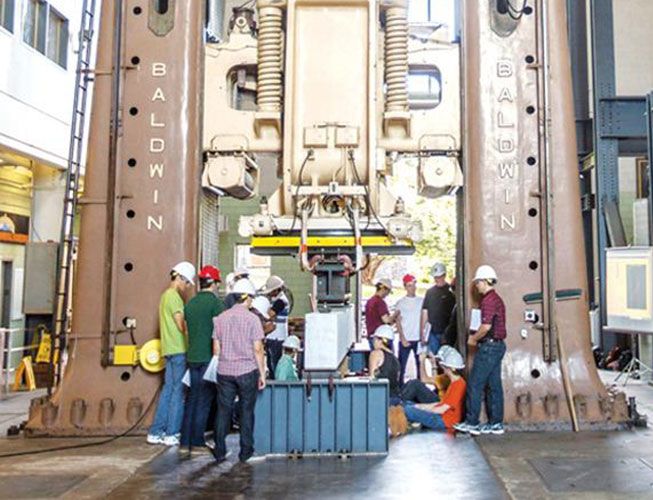Engineering faculty at Lehigh’s P.C. Rossin College of Engineering and Applied Science are included in a consortium that was recently awarded $2.5 million by the U.S. Department of Transportation (US DOT) in its first round of funding for Regional University Transportation Centers. The multi-year grant is authorized under the Fixing America’s Surface Transportation Act or the FAST Act, the first federal law in more than a decade to provide long-term funding certainty for surface transportation infrastructure planning and investment.
The $2.5 million grant will establish the Center for Integrated Asset Management for Multi-Modal Transportation Infrastructure Systems (CIAMTIS). The group, led by Pennsylvania State University, University Park, is comprised of seven universities, which includes—in addition to Lehigh—George Mason University, the University of Delaware, Virginia Tech, Morgan State University, West Virginia University and Pennsylvania State University, Altoona.
According to the CIAMTIS team, the American Society of Civil Engineers (ASCE) estimates that, over the next 10 years, a $1.0 trillion investment gap will occur for our nation’s transportation infrastructure systems. Support for new construction, upgrades, rehabilitation and maintenance across a wide variety of transportation modes is needed. Due to chronic shortfalls in transportation funding, it is imperative that these resources be allocated efficiently.
“Using resources efficiently means extending the life of infrastructure system components, like railway and highway bridges, before obsolescence and safety issues become critical,” says Richard Sause, the Joseph T. Stuart Professor of Structural Engineering and leader of the Lehigh team.
Sause, who is also director of the Advanced Technology for Large Structural Systems Engineering Research Center (ATLSS) at Lehigh, adds: “Lehigh is an internationally recognized leader in infrastructure research and we offer a unique combination of expertise in measurement and simulation of infrastructure performance, as well as experimental facilities and expertise, to address key research questions associated with extending the life of our nation’s infrastructure.”
Read the full story at the Lehigh University News Center.

